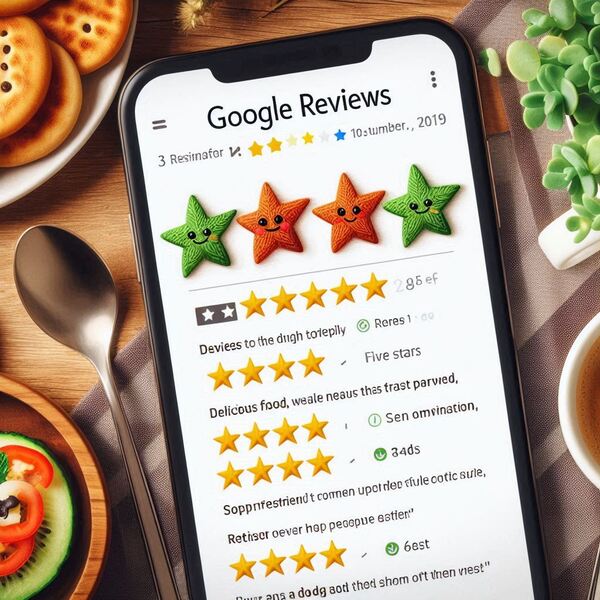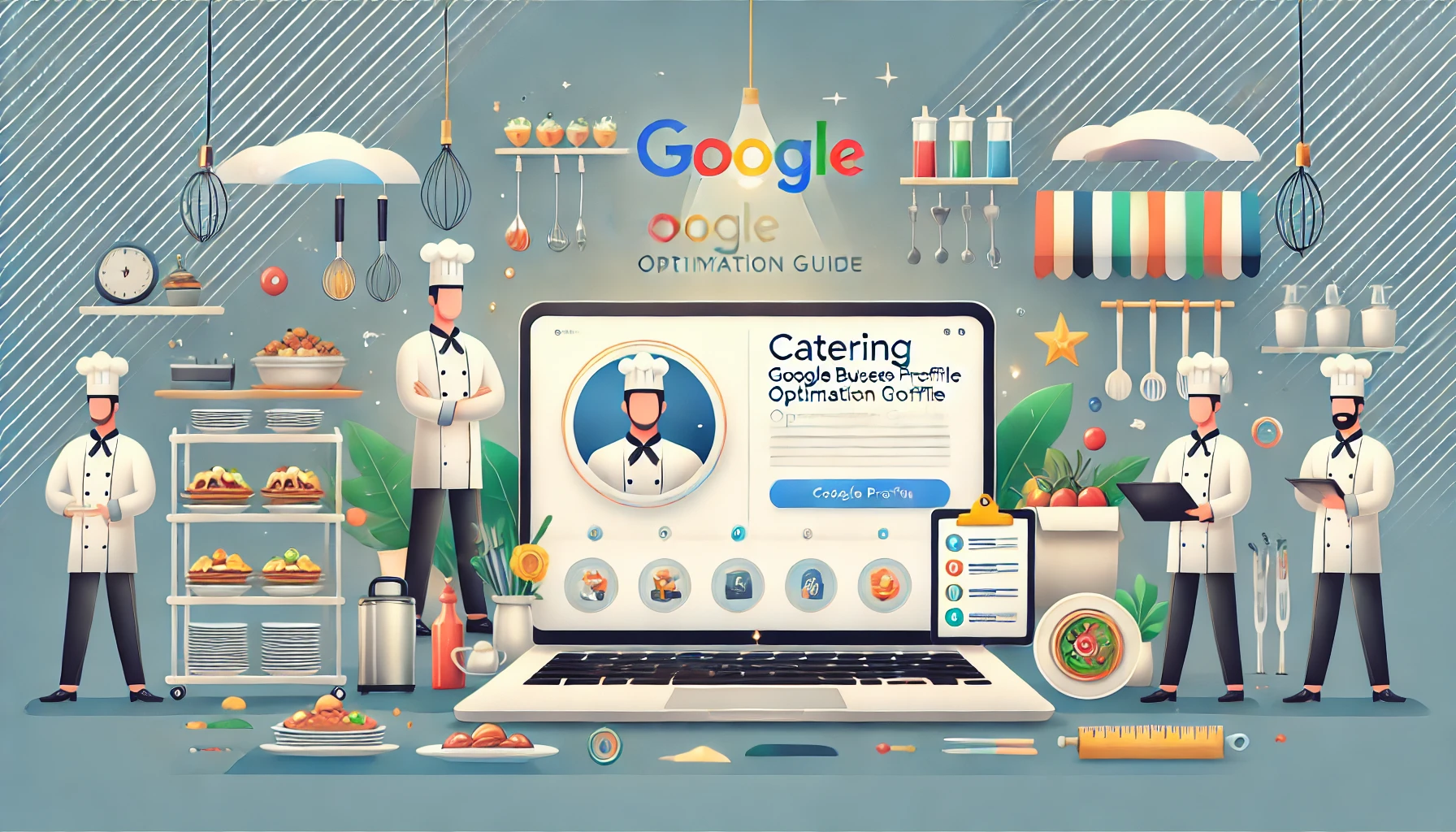In the competitive world of catering, standing out online is crucial for attracting new clients and booking more events. Search Engine Optimization (SEO) for caterers enhances your online presence and ensures your business is visible when potential clients search for catering services. Maximizing your online visibility through effective SEO strategies is key to driving traffic to your website and securing more bookings.
The catering industry can benefit greatly from SEO by focusing on aspects like enhancing local SEO and creating compelling, keyword-focused content. This digital optimization enables caterers to target event planners and anyone looking for catering services in their region. By implementing link-building strategies and measuring SEO ROI, catering companies can achieve sustained growth in their online footprint.
Key Takeaways
- SEO improves visibility and client engagement.
- Enhancing local SEO attracts regional clients.
- Measuring ROI ensures effective strategy implementation.
Developing a Strong SEO Foundation for Catering Businesses
Creating a robust SEO foundation involves understanding crucial elements such as keyword research and technical aspects to enhance the visibility of a catering business online. A well-optimized website not only improves site speed and mobile compatibility but also ensures a seamless user experience.
Understanding SEO Fundamentals
SEO, or Search Engine Optimization, is essential for making a catering business more visible online. It involves optimizing various elements of a website to improve search engine rankings. Consider the significance of meta titles and descriptions which directly impact how search engines view the site. Site speed is another critical component since fast-loading sites are favored by search engines and provide a better user experience.
Keyword Research for Catering Services
Identifying the right keywords is crucial for attracting potential clients searching for catering services. Utilize tools like Google Keyword Planner to find relevant, high-traffic keywords that align with your services. Focus on long-tail keywords specific to the catering business, such as “wedding caterers in [location]” or “corporate event catering.” This targeted approach helps in drawing more qualified leads to your website. Regularly update and refine keywords to maintain relevance.
Technical SEO for Catering Websites
Technical SEO ensures that search engines can easily crawl and index your website. This involves optimizing elements like XML sitemaps and robots.txt files. Ensure that your site is mobile-friendly, as a significant portion of users access websites from mobile devices. Address any broken links and redirect issues that might hinder site performance. Implementing SSL certificates enhances security, further improving site rankings.

Building a User-Friendly Catering Website
A user-friendly website is paramount to retaining visitors and converting them into customers. A clear and appealing design helps visitors navigate your services effortlessly. Ensure that important information, such as contact details and service offerings, is prominently displayed. Enhance the user experience by incorporating features like easy-to-fill contact forms and testimonials. Regularly update your site with fresh content to maintain engagement.
Creating Compelling Content for Catering Companies
Engaging and persuasive content can significantly enhance the online presence of catering businesses. By focusing on quality blog posts, detailed service pages with SEO-friendly meta descriptions, and captivating visual content, catering companies can connect more effectively with potential clients.
Crafting Quality Blog Posts
Quality blog posts are a cornerstone of content marketing for catering companies. Regularly updating your blog with industry insights, tips, and event highlights can attract new visitors and keep current clients engaged. Topics like catering trends, menu planning tips, and behind-the-scenes looks at events provide value.
Additionally, using relevant keywords strategically can improve search engine ranking. Incorporating local events or collaborations can also make your blog relatable to your target audience. Encourage interaction by inviting comments or sharing experiences.
Service Pages and Meta Descriptions
Service pages should clearly outline the catering services offered, emphasizing what sets your business apart. This can include types of events catered, menu customization options, and pricing tiers. Effective service pages are essential for converting website visitors into clients.
Meta descriptions provide a brief summary that appears in search results. These should be concise and compelling to encourage clicks. Incorporating primary keywords relevant to your services can enhance visibility and attract the right traffic, aligning with your overall SEO strategy.
Utilizing Engaging Visual Content
Visual content is crucial for showcasing the culinary artistry and atmosphere created by a catering company. High-quality photos of past events, team members, and notable dishes can add vibrancy to your website and social media platforms. Videos and photo galleries are effective in highlighting the catering experience.
Consider incorporating customer testimonials with event imagery to build credibility. Using platforms that allow image sharing, like Instagram or Pinterest, can further expand reach. Engaging visual content not only enhances appeal but also strengthens your brand identity, inviting potential clients to envision their events with your services.
Enhancing Local SEO and Online Visibility
A strong local SEO strategy helps caterers improve their online visibility and attract more clients. Key areas to focus on include optimizing Google My Business listings, leveraging customer reviews, and ensuring accurate local citations in directories.
Optimizing Google My Business for Caterers
For caterers, an optimized Google My Business profile is crucial. This tool allows local catering services, including wedding and corporate caterers, to appear prominently in search results and on Google Maps.
Start by ensuring all business details—name, address, phone number—are accurate. Add relevant keywords related to your services and locality, such as “corporate catering in [City].” Regularly upload high-quality images showcasing your events and dishes.
Posting updates about special offers and new menu items encourages engagement. Ensure your profile stays active with timely responses to inquiries and reviews. This helps build relationships and keeps your service relevant to local searchers.
The Significance of Customer Reviews
Customer reviews significantly impact online visibility. They influence search rankings and serve as powerful social proof for potential clients looking for local catering services.
Encourage satisfied customers to leave positive reviews on your Google My Business page. Consider a follow-up email process after events or include a direct link to your review page in customer communications.
Respond professionally to all reviews, whether positive or negative, demonstrating your commitment to customer satisfaction. By addressing concerns, you show potential clients that you value feedback and are willing to improve. This approach enhances trust and helps attract more bookings.

Local Citations and Online Directories
Local citations—mentions of your business on websites and online directories—are vital for caterers aiming to boost local SEO. Consistency in how your business information is listed across platforms strengthens your credibility with search engines.
Claim your business listings in local directories relevant to catering, such as wedding and event planning sites. Ensure that each listing contains accurate and up-to-date information.
Participating in niche directories focused on weddings or corporate events can be particularly beneficial. This not only improves search visibility but also enhances the chances of attracting targeted clients looking specifically for services like yours.
Link Building and Digital PR Strategies
For caterers, effective link-building and digital PR strategies can significantly enhance online visibility and drive organic traffic to your website. By focusing on a solid backlink strategy and partnerships within the catering industry, you can strengthen your SEO efforts.
Developing a Backlink Strategy
A strong backlink strategy is essential for increasing your website’s authority and search engine ranking. Start by identifying reputable food blogs and catering directories that align with your brand. Reach out to these sites for guest blogging opportunities or content collaborations. This increases your chances of acquiring high-quality backlinks.
Integrating SEO best practices, such as keyword-rich anchor texts and diversified link sources, is crucial. Consider hiring professional SEO services to manage complex link building tasks. They bring expertise in targeting websites with high domain authority, which can significantly boost your search engine rankings. Additionally, ensure your website content is high-quality and shareable to naturally attract links from other websites. Keep track of your backlinks using tools like Ahrefs or SEMrush to analyze performance and identify new opportunities.
Catering Industry Partnerships and PR
Building partnerships within the catering industry can be an effective digital PR approach. Collaborate with other caterers or food service providers for joint promotional events or campaigns. These initiatives can create valuable backlinks to your site and enhance brand credibility.
Participate in industry events, webinars, or trade shows. This offers opportunities to network and form PR partnerships that facilitate backlinks. Digital PR campaigns focused on unique or newsworthy content can capture media attention. Craft compelling press releases and distribute them to catering-relevant publications. Consider working with influencers in the food and beverage sector for additional reach and engagement. This can expand your audience and generate more linking opportunities, further enhancing your site’s SEO.
Measuring SEO Success and ROI
In today’s competitive market, caterers must measure SEO success to ensure their online strategies are effective. This includes analyzing tools like Google Analytics, understanding organic traffic and conversions, and conducting regular SEO audits. These elements help in calculating return on investment, ensuring that online efforts translate to tangible business growth.
Using Google Analytics for SEO Tracking
Google Analytics is an essential tool for catering businesses aiming to track SEO success. It offers insights into visitor behavior, traffic sources, and user engagement. By setting up specific goals, like contact form submissions or newsletter sign-ups, caterers can measure the effectiveness of SEO campaigns.
Analytics data can show which keywords drive traffic and how users interact with the site. This information aids in making informed decisions about keyword targeting. Additionally, tracking metrics such as bounce rate and session duration helps identify areas for improvement to increase user engagement.
Setting up custom dashboards in Google Analytics highlights key performance indicators at a glance. Regular review of these metrics allows caterers to adjust their strategies promptly for better results.

Assessing Organic Traffic and Conversions
Organic traffic is a crucial indicator of SEO success, as it reflects the number of visitors finding a caterer’s site through unpaid search results. By increasing organic search presence, caterers can attract more potential clients without spending heavily on ads.
Conversion rate optimization (CRO) focuses on turning this traffic into valuable actions, such as booking services or requesting consultations. Tracking conversions through tools like Google Analytics reveals how effectively the website translates visitors into customers.
Analyzing which pages have the highest conversion rates helps pinpoint what works. Conversely, identifying pages with low conversions can show where improvements are needed. This ongoing assessment is vital to refine content and calls-to-action, ensuring users find the value they seek.
Regular SEO Audits and Adjustments
Conducting periodic SEO audits is crucial for maintaining a healthy online presence. These audits identify technical issues, content gaps, and performance bottlenecks that could hinder SEO efforts. Engaging with SEO experts ensures that audits are comprehensive and actionable.
A standard audit checks for issues like broken links, slow page load times, and mobile-friendliness. It also involves reviewing meta tags, image alt texts, and internal linking structures. Addressing these factors can improve organic search results and overall site usability.
Regular adjustments based on audit findings help keep a caterer’s website optimized. Staying updated with SEO trends and algorithm changes is vital for maintaining visibility and maximizing return on investment.
Frequently Asked Questions
How can I optimize my catering website for search engines?
To optimize your catering website, ensure it is mobile-friendly and loads quickly. Utilize relevant keywords in your content, meta tags, and URLs. Structured data can enhance search engine understanding, improving visibility.
What are the best SEO practices for a new catering business?
For new catering businesses, creating quality content that addresses customer questions and needs is crucial. Developing a localized SEO strategy can help reach local clients. Building backlinks from reputable websites also enhances your online presence.
Which keywords should I target to improve my catering business’s online visibility?
Targeting keywords that reflect specific catering services and local event terms can be beneficial. Use tools like Ahrefs to identify popular search terms relevant to your business, like “wedding catering services” or “corporate event catering near me.”
Can I do SEO on my own for my catering company, and if so, how do I begin?
SEO can be managed independently by learning through online resources and tools like Google Analytics and Ahrefs. Start by optimizing your website’s content with relevant keywords, and track your site’s performance regularly to adjust strategies as needed.
What are the costs involved in implementing SEO for a small catering business?
Costs can vary widely for small businesses. DIY methods may involve minimal financial costs but require time investment. Hiring an SEO professional or agency can range from a few hundred to several thousand dollars per month, depending on services offered.
How can SEO be used effectively in a marketing strategy for a catering service?
Incorporating SEO into a broader marketing strategy can improve search rankings and drive targeted traffic. Combining SEO with social media marketing, content marketing, and customer engagement through newsletters can enhance brand visibility and attract potential clients.





